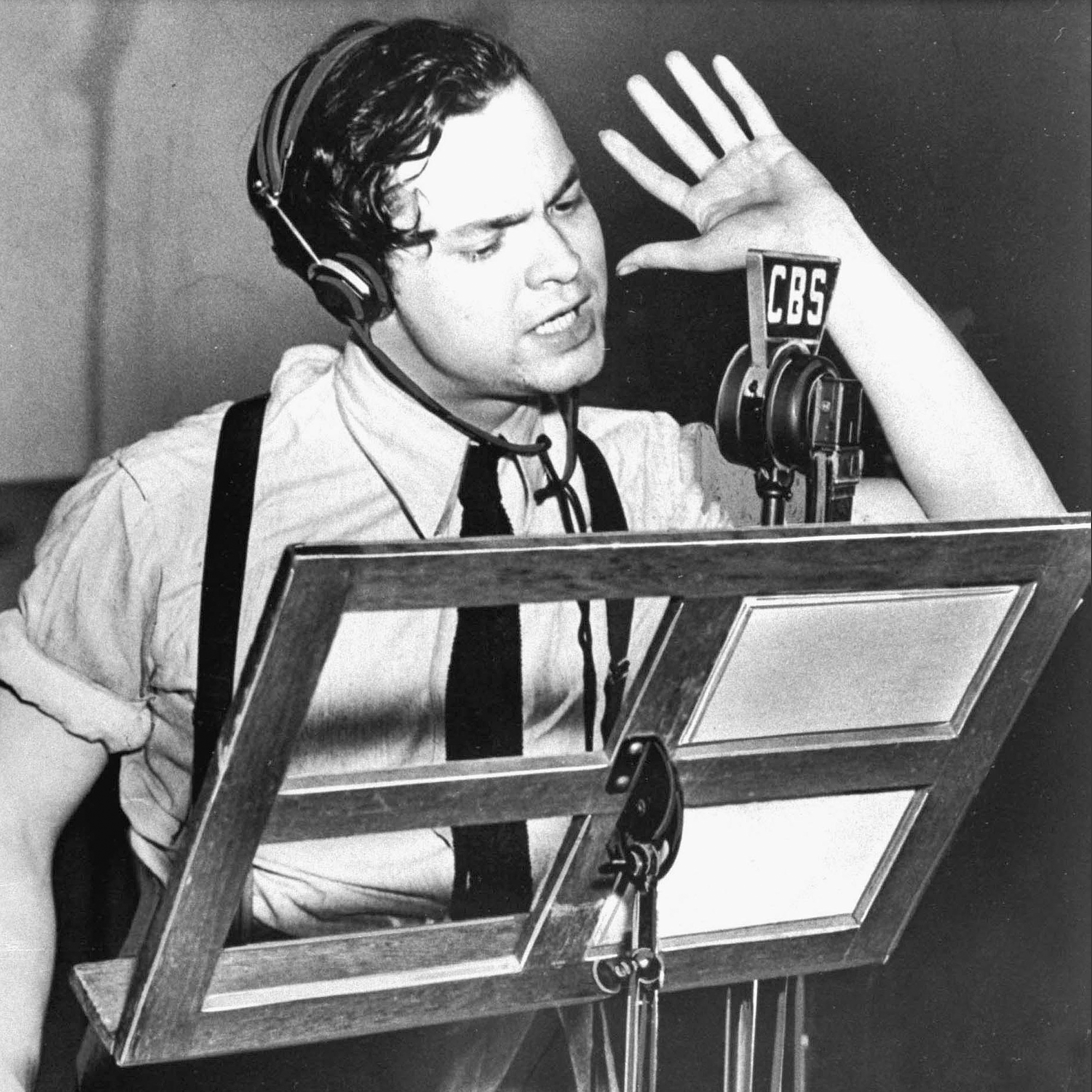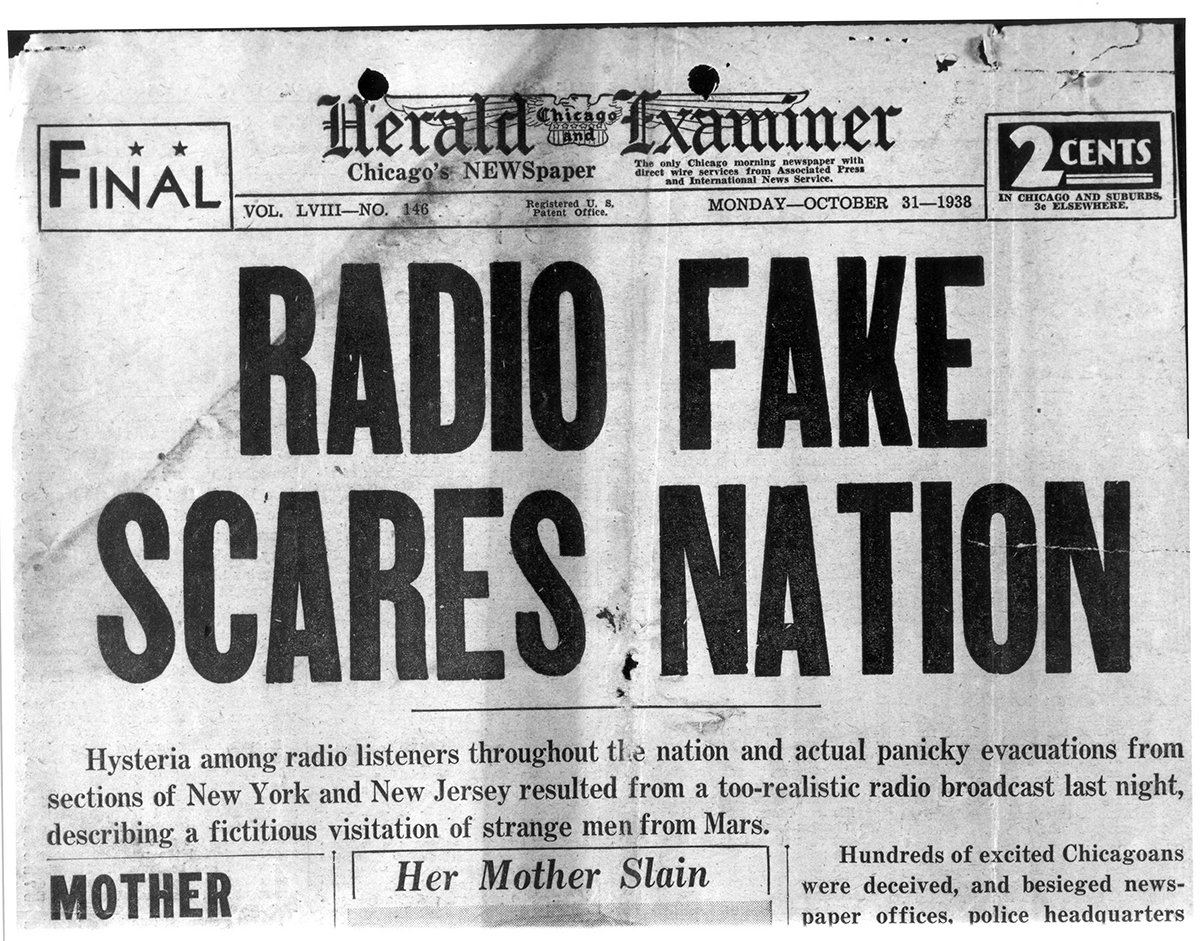Orson Welles- "War of the Worlds Halloween Broadcast" -Dean Ormonde
One of the most well-known and controversial radio broadcasts in history is Orson Welles' "War of the Worlds" broadcast from the evening of October 30, 1938. This version of a science fiction story by H.G. Wells about a Martian invasion is sometimes used as a benchmark for the influence of mass media and the potential for frenzy and fear it may generate. The radio program "The Mercury Theatre on the Air," hosted by Orson Welles, was renowned for its inventive and theatrical interpretations of classic literature and modern plays. The "War of the Worlds" broadcast was a component of this program.
To provide their viewers a special and thrilling experience for their Halloween episode, Welles and his team opted to adapt H.G. Wells' novel. The tale was told through a series of fake live reports and interviews in the form of a news bulletin for the broadcast. Welles himself took on the character of Professor Richard Pierson, the narrator of the program, who watched and documented the Martian invasion as it happened.

To add to the impression of realism, the show included realistic sound effects, such as real recordings of radio broadcasts and emergency sirens. The play started out very innocently with several musical performances and made-up news reports. But as the show went on, it became more and more obvious that something strange and horrifying was going on. bizarre explosions on Mars, strange meteorite landings in New Jersey, and the finding of a huge cylindrical item at Grover's Mill were all reported to the listeners. Welles and his colleagues effectively used the fact that listeners frequently switch between radio broadcasts to disorient anyone who might have missed the original disclaimer.
The pivotal moment came when the broadcast transitioned to a live on-the-scene report from Grover's Mill, where the Martian cylinder had supposedly crashed. The reporter described the unfolding chaos, the appearance of alien creatures, and the use of deadly heat rays. Panic and fear were palpable in the reporter's voice, and listeners were led to believe that the United States was under attack by extraterrestrial forces.
As the broadcast continued, it became a full-blown crisis narrative, with scenes of panic, military mobilization, and desperate efforts to combat the Martian invaders. The tension was heightened by the fact that there were no commercial breaks during this portion of the broadcast, adding to the illusion of a continuous and unfolding emergency. The realism of the broadcast was a testament to the skill and creativity of Orson Welles and his team. They understood the medium of radio and used it to create a sense of immediacy and authenticity.
Many listeners who tuned in late or missed the initial disclaimer were genuinely convinced that they were listening to a real news report of an alien invasion.
In some places, panic broke out, causing residents to run from their houses, clog up the roadways, and even ask for help. The broadcast's aftereffects came quickly and strongly. The broadcast's resulting terror and mayhem were documented in newspapers and radio media, and it quickly became a huge news event. Both the public and elected politicians attacked and criticized Orson Welles and the Mercury Theatre. While some decried the program as recklessly promoting panic, others celebrated it as a masterful work of entertainment.
In the days following the broadcast, Orson Welles and his colleagues held a press conference to address the controversy and explain their intentions. They expressed regret for any undue alarm caused by the broadcast but maintained that they had not set out to deceive or panic the public. They argued that the disclaimer at the beginning of the program should have been sufficient to alert listeners to the fictional nature of the broadcast.

The "War of the Worlds" broadcast eventually had a favorable effect on Orson Welles' career, despite the initial fury and panic. It propelled him to national recognition and solidified his reputation as a creative genius in the radio and entertainment industries. His mastery of storytelling was evident in how he used the radio to craft such a powerful and engaging experience.
The broadcast also had a lasting impact on the field of media and communication studies. It became a case study for exploring the dynamics of mass communication, audience psychology, and the consequences of media manipulation. Researchers and scholars have analyzed the broadcast's effects on the public and its role in shaping media ethics and regulations.
Orson Welles made the switch to directing in the years after the broadcast and created his masterwork, "Citizen Kane," which is frequently recognized as one of the greatest movies ever made. His success on both radio and movies cemented his position as a storied personality in the entertainment sphere. The "War of the Worlds" broadcast by Orson Welles marks a turning point in the development of radio and mass media. It revealed both the ability of the media to incite widespread anxiety and terror as well as the moral and ethical obligations that go along with such authority. While the broadcast originally incited panic and mayhem, it also demonstrated Orson Welles' creative brilliance and created a lasting impression on the entertainment and media studies industries.
The "War of the Worlds" broadcast remains a testament to the enduring impact of Orson Welles and his ability to captivate and provoke audiences.
References:
Hilmes, M. (2021). Only Connect A Cultural History of Broadcasting in the United States. Boston, MA, Cengage.
https://www.neh.gov/article/fake-news-orson-welles-war-worlds-80

Comments
Post a Comment